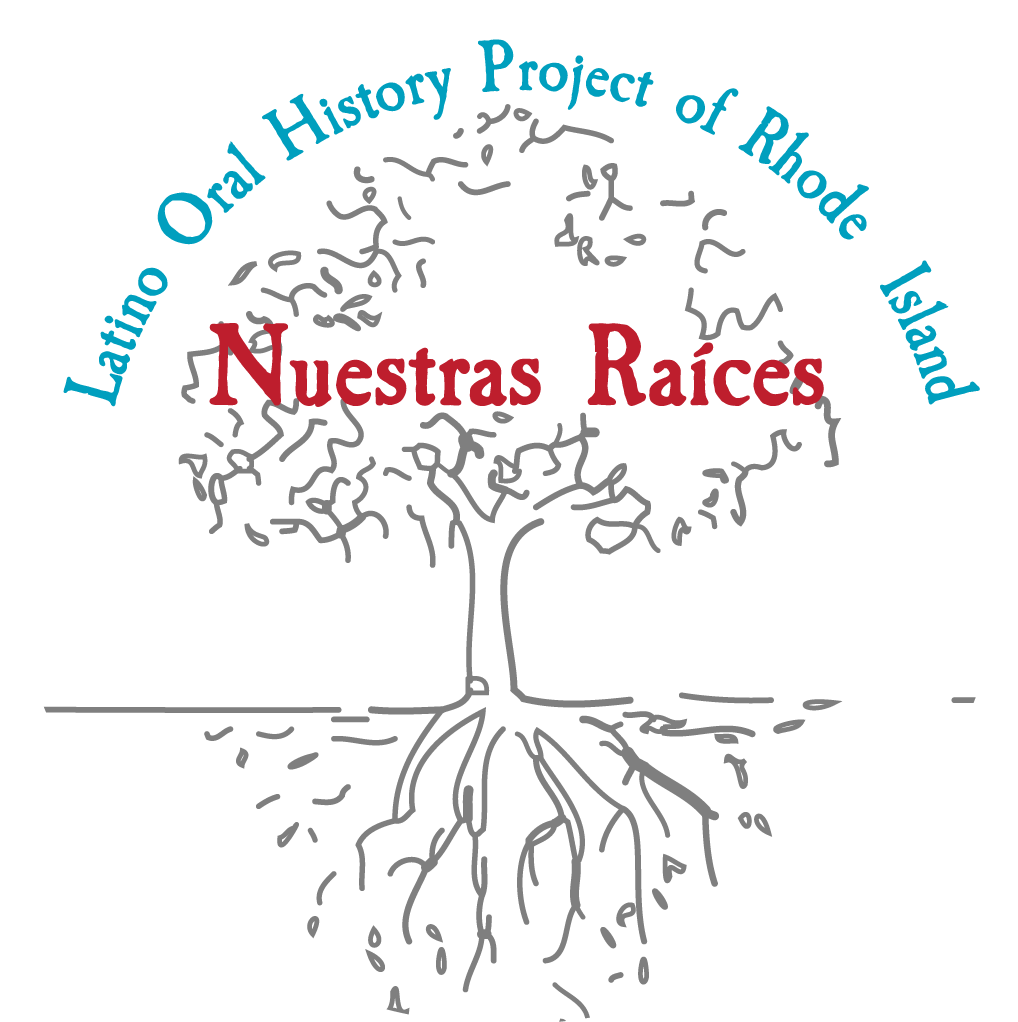In recent years, many people have found oral history to be a valuable tool for exploring the past. Oral histories (also known as oral testimony and oral memoirs) convey a dramatic,
first-hand view of history with a storytelling approach and a sense of personal experience. Conducting interviews with family and community members illuminates the way historic developments affect everyday life.
The life of a long-ago immigrant or a recent arrival to America is a particularly rich topic for exploration through oral history. Granted, it is not easy to trace the personal lives of those who first made their way to America as far back as the turn-of-the 20th century, when America first began receiving countless immigrants from Europe. However, it should be relatively easy to find someone to interview who came to Rhode Island from any Spanish-speaking country, mainly because, l unlike Latinos in the West Coast or Southwest, Hispanics began arriving and settling here as recently as the 1940s and 50s. Today, there are hundreds of Latinos living in Rhode Island with vivid memories of their first arrival to this state.
Oral testimony can provide powerful insight into the experiences of Latinos who first moved to Rhode Island and how they might compare to what is happening around the country in a broader sense. The 1960s, for example, was a time of local political upheaval and other social movements covered by the national news that played crucial roles in shaping this era, such as the Vietnam War, the Civil Rights, the Hippie Movement, and the Chicano Movement in the Southwest. We can learn whether newly-arrived Hispanics were even aware of these more global movements or issues, or were they too busy dealing with their own interpersonal experiences of assimilation into American society—learning English, finding work, taking driving tests, enrolling their children in local schools, simple tasks of figuring out how to use the American currency, and other such stories of every-day survival that we all take for granted. Oral testimony is an excellent tool for studying how the lives of these new arrivals may or may not have been affected. Oral memoirs can help us to move beyond easy slogans to see the complexity and the human drama of the human experience.
Yet all oral history projects present special challenges. Sometimes we assume that first-person testimony represents the absolute truth, "the way things really were." It is more helpful to approach oral history as a form of memory--an individual's way of interpreting and narrating their experience during a particular event or period. Seen this way, oral memoirs can help us understand the crucial role of perspective and interpretation in history. This is particularly valuable in studying a controversial period such as the example of life in the 1960s, as mentioned above. Oral memoirs that present contrasting views of this period can help us explore the conflicts that divided the nation during these years-and how issues raised then continue to shape our social and political discourse today. In addition, oral history can bring forth the history of ethnic groups that our children will never find in their history books at school. It can serve as a way to inspire young Latinos and to provide rising Latino leaders with a foundation and insight into the kinds of battles their forbearers led that brought them the things that they take for granted today.
Finally, it is very important to plan an oral history project carefully. Oral history projects are hard work. Conducting a good interview is not always easy; and doing the interview is only a small part of creating a good oral memoir. The tips offered here suggest some practical steps to consider as you work to create a meaningful oral history project, one that results in sound learning opportunities. It is introductory, and far from comprehensive. You should feel free to adapt it to make it work for your own setting, age level, and project.
More...



